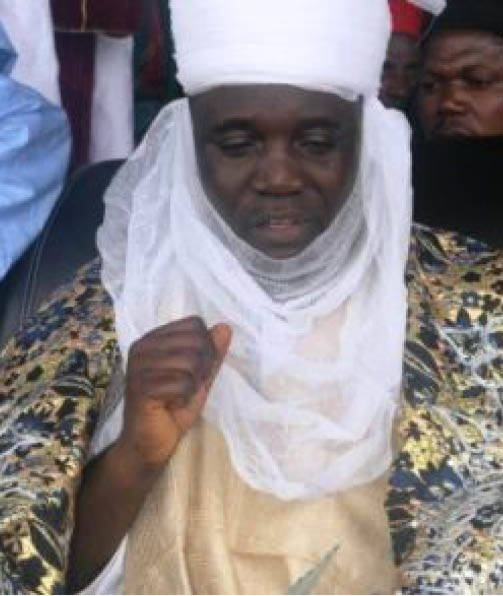A peek into Bwari chieftaincy tussle
Against the backdrop of controversies trailing the recent appointment of Sarkin Bwari, a second class paramount ruler, against an existing traditional stool of Etsu of Bwari, our reporter examines the historical context of the traditional institution in Bwari and the ethnic intrigues that have threatened to breach the peace in the area. Since the appointment […]


Against the backdrop of controversies trailing the recent appointment of Sarkin Bwari, a second class paramount ruler, against an existing traditional stool of Etsu of Bwari, our reporter examines the historical context of the traditional institution in Bwari and the ethnic intrigues that have threatened to breach the peace in the area.
Since the appointment of Alhaji Awwal Musa Ijakoro as the new Sarkin Bwari to replace his late father, Alhaji Muhammad Musa Ijakoro, who died on August 29, 2017, the Gbagyi speaking natives of the area have appeared to be agitated.
Aso Chronicle findings reveals that the Gbagyi are opposed to the idea of having another chief of the same status withn the Etsu Bwari, their traditional head, operating in the same area.
 |
They feel it is a subjugation of their people, as, according to them, the new sarki is a Koro and a settler and not a Gbagyi and therefore cannot be king over the Gbagyi.
Bala Ahmad Shere, the Jagaban Shere Koro, however, said the action of the Minister of the FCT, Muhammad Musa Bello, to appoint Ijakoro Emir of Bwari was legal, so far as there was an act that legalised his action.
He said the stool was not recently created, stressing that the late Emir of Bwari, Alhaji Musa Muhammad Ijakoro, was elevated to second class status in 1997 by the then Minister of the FCT, Lt. General Jeremiah Timbut Useni.
“He was elevated along with two others, the existing district heads that the FCT administration inherited. They include Kuje and Kwali districts and several other village and hamlet heads. Only Abaji was inherited with third class chief, and elevated to the first class chief.
“It can thus be inferred here that the word “appointment” does not arise at all. It is a fallacy to claim that he was appointed. FCT came to inherit the stool as one of the paramount and active traditional rulers in Abuja-which led to his elevation to the exalted position of the second class Chief of Bwari.
“Dr. Musa Muhammad Ijakoro was a district head with a difference from the others that had ruled Bwari between 1902 to 1975. There were 10 village heads that made up the kingmakers of Bwari District in 1975, which included the Koro and Gwari. The village heads were simply referred to as dagatai
Also speaking, Abubakar Musa Ijakoro, Ciroman Bwari, stated that following the compulsory retirement of Abubakar Barau Musa Angulu, District Head of Bwari between 1954 and 1975, by the then Military Governor of North Western State, Police Commissioner Usman Faruq, decreed that all vacant chieftaincy titles must be filled by the indigenous people of that district.
He said as the contest was opened, four people came out to contest for the position of the District Head of Bwari. “They included Malam Danladi Zuma – Bwari village (Gbagyi), Samaila Mainasara – Ija-Gbagyi (Gbagyi), Salihu Sunbwada – Diko village (Gbagyi), and Musa Muhammad – Ijakoro village (Koro).
He noted that while the Koro village heads presented a single candidate, the Gbagyi presented three candidates who were defeated by Ijakoro.
“At this juncture, the whole world should know that Bwari District did not comprise of only Gbagyi, Koro, Hausa and Fulani. The Zango Hausa in Bwari had been there for 89 years before the Gbagyi were forced down from the hill.
“We equally wish to indicate here that Koro migrated to Abuja much earlier than the Gbagyi. According to historical documents, anywhere you see Gbagyi, they must have come after Koro. And they revered the Koro. That is why the Gbagyi simply refer to the Koro as Apoyi, meaning one who saves life. It was Koro chiefs that turbaned the Gbagyi chiefs, which means they were subjects to Koro throughout the history of Abuja emirate.
“Before the advent of the colonial masters and after Nigeria’s Independence in 1960; the Village Head of Bwari (Dagaci) was always turbaned by the Chief of Dogon Kurmi. Similarly, the village Head of Ushafa was always turbaned by the Chief of Ijakoro,” he explained.
The Ciroman Bwari also said all the historical monuments or symbols in Abuja were owned by the Koro, not the Gwari who claim the ownership of Abuja.
He claimed the popular Aso Rock and Zuma Rock were owned by the Koro. “Or is there any Gbagyi who can make a claim to these symbols?” he asked.
However, the Bwari Youths Development Association (BYDA) has demanded the abolition of the Emir of Bwari stool, noting that they recognised only the Etsu Bwari as the paramount ruler of the town.
The spokesman for the BYDA, Theophilus Baba, alleged that the Sarkin Bwari was imposed on the town by the FCT minister, noting that the chief was an indigene of Niger State.
Baba said, “We want the government to truly demonstrate equity and fairness by abolishing the seat of Emir or Sarkin Bwari that has caused more harm than good.
“The only traditional institution we want to bow to is that of the Etsu. We want our Etsu, HRH Ibrahim Yaro, to be seen as the one and only traditional ruler in the Bwari Chiefdom.”
